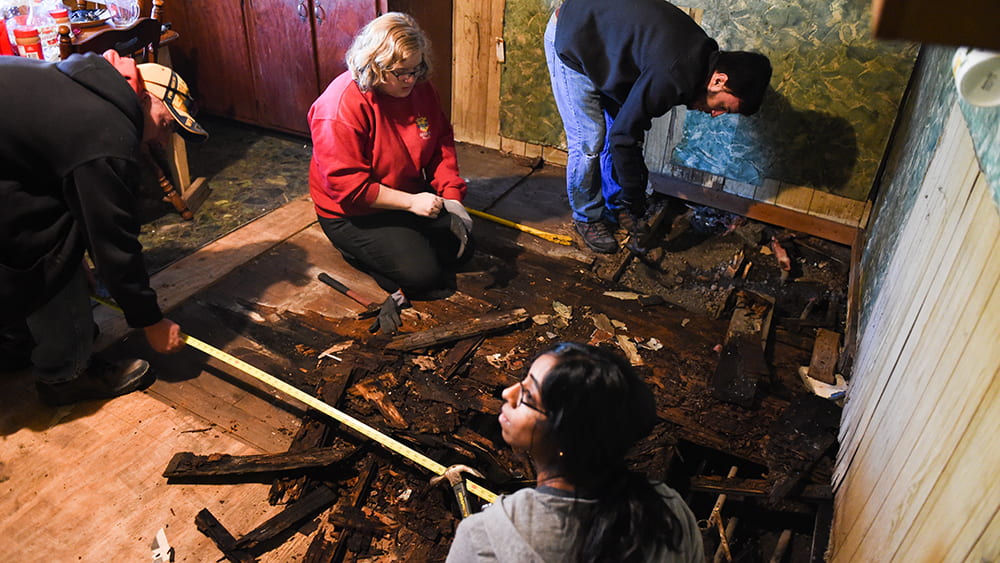BY STEWART COARD – STAFF WRITER
A group of Centre students and faculty traveled up to Chicago this March to spend spring break volunteering and learning about poverty.
The Alternative Spring Break Program provides students with the opportunity to use their free time to not only benefit others, but explore issues relating to poverty, immigration, mass incarceration, and education. Students stayed at the Brother David Darst Center, close to Chicago’s Chinatown, while the Center arranged a series of educational visits and service events for their benefit.
“The purpose is to really give students this alternate option,” said Greg Chery, the program coordinator. “There’s this pressure that spring break has to be going to the beach and getting drunk for a week. I think that some students really want to do something educational with their break, they just don’t know what it is.”
Megan McGuire, one of the administrators at the Darst Center explained the general structure of the Center’s program. “Within the Urban Immersion experience itself, we take students to approximately 7 of our 20 different partner agencies to either participate in service or to meet clients and learn about the issues faced by that community. Outside of going to specific sites, we also facilitate in-house reflections and activities to help students further unpack the issues they are seeing,” she said.
“What I hope students got out of it was that there is a bigger bubble than Centre,” Chery explained. “It is a sort of reminder that the issues we are talking about here on campus, there are people living these issues right now. I hope it inspires them, that there is something they can do about it now. You can learn about these issues and still serve, still volunteer, right now,” he said.
Kore Severance, a first year student at Centre, discussed some of the activities on the trip. “We learned about different organizations within Chicago that worked with communities to better the city. I really enjoyed the service, an example of that is when we helped kids in an after-school program. We went to a men’s homeless shelter and got to know them as people,” she said.
When asked about how the trip affected her, she explained, “I want to be a public defender in Chicago now. It taught me more about the segregation issues and the War on Drugs.”
Mason Isgrig, also a first year at Centre, said he chose to go on the trip to learn more about the experience of poverty and homelessness in large American cities. It changed “how I look at homelessness, and how I look at people in mass incarceration, how I look at people who live in these low income and impoverished communities,” he said. He even said he would like to use his double major in environmental studies and politics to help the people he met in Chicago.

